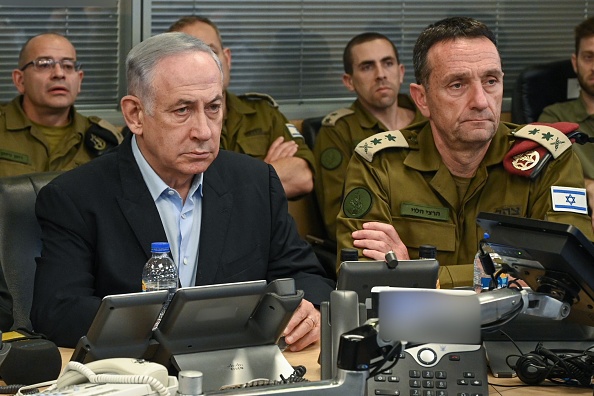Israeli fighter jets struck Houthi military targets near Yemen’s Hodeidah port on Saturday, killing at least three people and wounding 87, a day after a drone launched by the Iranian-backed group hit Israeli economic hub Tel Aviv.
Most of the wounded suffered severe burns in air strikes that targeted oil facilities and a power station, Al-Masirah TV, the main television news outlet run by Yemen’s Houthi movement, quoted the health ministry as saying.
Hodeidah residents told Reuters by phone that explosions were heard throughout the city during an intensive bombardment, and Al-Masirah TV said civil defence forces and firefighters were trying to extinguish fires in the port’s oil tanks.
Israel’s military spokesperson said the port had been used by the Houthis to receive weapons shipments from Iran. The targets, more than 1,700 km (1,056 miles) from Israel, included dual-use sites such as energy infrastructure, he said.
Israel had informed allies before the strike, which the military said was carried out by Israeli F-15 fighters that all returned safely.
The Houthis’ Supreme Political Council said there would be an “effective response” to the strikes. Houthi military spokesperson Yahya Saree said the Houthis “will not hesitate to strike vital targets of the Israeli enemy.”
The strike on Yemen, which Israeli officials said came after more than 200 Houthi attacks on Israel, underlined fears that the Gaza war, triggered by the Hamas-led attack on Israel on Oct. 7, could spiral into a regional conflict.
“The fire that is currently burning in Hodeidah is seen across the Middle East and the significance is clear,” Israeli Defence Minister Yoav Gallant said in a statement.
“The Houthis attacked us over 200 times. The first time that they harmed an Israeli citizen, we struck them. And we will do this in any place where it may be required.”
On Friday, a long-range Iranian-made drone launched from Yemen hit the centre of Tel Aviv in an attack claimed by the Houthis, killing one man and wounding four others.
That attack followed an escalation in the daily exchange of fire between Israeli forces and the Iranian-backed Hezbollah militia in southern Lebanon and came as Prime Minister Benjamin Netanyahu prepares to travel to Washington, where he is due to address the U.S. Congress.
Netanyahu called on the international community to step up pressure on Tehran and its proxies – the Houthis, Hamas and Hezbollah – and in so doing help secure international trade routes.
“Whoever wants to see a stable and safe Middle East needs to stand against Iran’s axis of evil, and support Israel’s struggle against Iran and its proxies,” Netanyahu said.
Meanwhile, Iran’s foreign ministry spokesperson, Nasser Kanaani, condemned the Israeli attacks and “warned against the risk of escalation of tension and the spread of war in the region as a result of the dangerous adventurism of the Zionists,” Iranian state media reported.
In a statement, Hezbollah also condemned the attack on Hodeidah, describing it as “a foolish step … that marks a new and dangerous phase of the extremely important ongoing confrontation.”
As the war in Gaza has gone on, the Houthis have stepped up attacks against Israel and Western targets, saying they are acting in solidarity with the Palestinians.
They began attacking Western ships in the Red Sea and the Gulf of Aden. Their attacks have upended global trade by forcing ship owners to reroute vessels away from the vital Suez Canal shortcut, and drawn retaliatory U.S. and British strikes since February.
“A brutal Israeli aggression targeted civilian buildings, oil facilities and power station in Hodeidah aiming at pressuring Yemen to stop supporting Gaza,” Mohammed Abdulsalam, chief negotiator for Houthi movement, said on X.
He said the attack would “only increase our determination, steadfastness, (and) continuity”.
A Saudi ministry of defence spokesperson said that the kingdom was not involved in or participating in the targeting of Hodeidah, adding Saudi Arabia “will not allow its airspace to be infiltrated by any party” whatsoever.
Egypt, which has been trying to help broker a Gaza ceasefire and hostage release deal, said it was following “with great concern” the Israeli strike.
Hamas stormed Israeli towns on Oct. 7, killing around 1,200 people and taking more than 250 hostages back to Gaza, according to Israeli tallies. Since then, nearly 39,000 Palestinians have been killed in Israel’s assault on the Gaza Strip, according to health authorities in the enclave.
(Reuters)




















